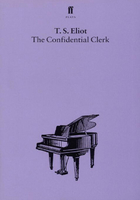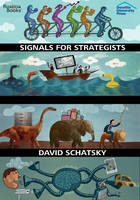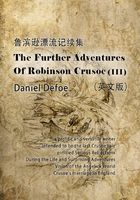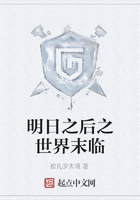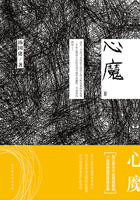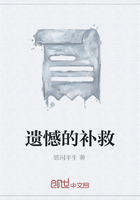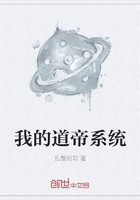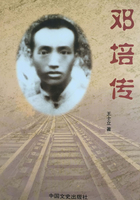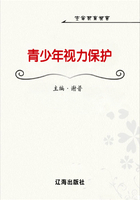THE HOUSE WAS BUILT OF ROSE-COLORED plaster that had peeled and faded with the dampness and from its porch you could see the sea, very blue, at the end of the street. There were laurel trees along the sidewalk that grew high enough to shade the upper porch and in the shade it was cool. A mockingbird hung in a wicker cage at a corner of the porch, and it was not singing now, nor even chirping, because a young man of about twenty-eight, thin, dark, with bluish circles under his eyes and a stubble of beard, had just taken off a sweater that he wore and spread it over the cage. The young man was standing now, his mouth slightly open, listening. Someone was trying the locked and bolted front door.
As he listened he heard the wind in the laurels close beside the porch, the horn of a taxi coming along the street and the voices of the children playing in a vacant lot. Then he heard a key turn again in the lock of the front door. He heard it unlock the door, heard the door pulled against the bolt, and then the lock being turned again. At the same time he heard the sound of a bat against a baseball and shrill shouting in Spanish from the vacant lot. He stood there, moistening his lips, and listened while someone tried the back door.
The young man, who was named Enrique, took off his shoes and, putting them down carefully, moved softly along the tiling of the porch until he could look down at the back door. There was no one there. He slipped back to the front of the house and, keeping out of sight, looked down the street.
A Negro in a narrow-brimmed flat-topped straw hat and a gray alpaca coat and black trousers was walking along the sidewalk under the laurel trees. Enrique watched, but there was no one else. He stood there for some time watching and listening, then he took his sweater off the bird cage and put it on.
He had been sweating heavily while he had been listening and now he was cold in the shade and the cool northeast wind. The sweater covered a leather shoulder holster, the leather ringed and salt-whitened with perspiration, that he wore with a forty-five-caliber Colt pistol which, by its constant pressure, had given him a boil a little below his armpit. He lay down on a canvas cot now close to the wall of the house. He was still listening.
The bird chirped and hopped about the cage and the young man looked up at it. Then he got up and unhooked the door of the cage and opened it. The bird cocked his head at the open door and drew it back, then jerked his head forward again, his bill pointing at an angle.
"Go on," the young man said softly. "It's not a trick."
He put his hand into the cage and the bird flew against the back, fluttering against the withes.
"You're silly," the young man said. He took his hand out of the cage. "I'll leave it open."
He lay face down on the cot, his chin on his folded arms, and he was still listening. He heard the bird fly out of the cage and then he heard him sing in one of the laurel trees.
"It was foolish to keep the bird if the house is supposed to be empty," he thought. "It is just such foolishness that makes all the trouble. How can I blame others when I am that stupid?"
In the vacant lot the boys were still playing baseball and it was quite cool now. The young man unbuckled the leather shoulder holster and laid the big pistol by his leg. Then he went to sleep.
When he woke it was dark and the street light on the comer shone through the leaves of the laurels. He stood up and walked to the front of the house and, keeping in the shadow and the shelter of the wall, looked up and down the street. A man in a narrow-brimmed, flat-topped straw hat stood under a tree on the comer. Enrique could not see the color of his coat or trousers, but he was a Negro.
Enrique went quickly to the back of the porch but there was no light there except that which shone on the weedy field from the back windows of the next two houses. There could be any number of people in the back. He knew that, since he could no longer really hear as he had in the afternoon, because a radio was going in the second house away.
Suddenly there came the mechanical crescendo of a siren and the young man felt a prickling wave go over his scalp. It came as suddenly as a person blushes, it felt like prickly heat, and it was gone as quickly as it came. The siren was on the radio; it was part of an advertisement, and the announcer's voice followed, "Gavis tooth paste. Unaltering, insuperable, the best."
Enrique smiled in the dark. It was time someone should be coming now.
After the siren on the recorded announcements came a crying baby which the announcer said would be satisfied with Malta-Malta, and then there was a motor horn and a customer who demanded green gas. "Don't tell me any stories. I asked for green gas. More economical, more mileage. The best."
Enrique knew all the advertisements by heart. They had not changed in the fifteen months that he had been away at war; they must still be using the same discs in the broadcasting station, and still the siren had deceived him and given him that thin, quick prickle across the scalp that was as definite a reaction to danger as a bird dog stiffening to the warm scent of quail.
He had not had that prickle when he started. Danger and the fear of it had once made him feel empty in his stomach. They had made him feel weak as you are weak with a fever, and he had known the inability to move; when you must force movement forward by legs that feel as dead as though they were asleep. That was all gone now, and he did without difficulty whatever he should do. The prickling was all that remained of the vast capacity for fear some brave men start with. It was his only remaining reaction to danger except for the perspiring which, he knew, he would always have, and now it served as a warning and nothing more.
As he stood, looking out at the tree where the man with the straw hat sat now, on the curb, a stone fell on the tiled floor of the porch. Enrique looked for it against the wall but did not find it. He passed his hands under the cot but it was not there. As he knelt, another pebble fell on the tiled floor, bounced and rolled into the corner toward the side of the house and into the street. Enrique picked it up. It was a smooth-feeling ordinary pebble and he put it in his pocket and went inside the house and down the stairs to the back door.
He stood to one side of the door and took the Colt out of the holster and held it, heavy in his right hand.
"The victory," he said very quietly in Spanish, his mouth disdaining the word, and shifted softly on his bare feet to the other side of the door.
"To those who earn it," someone said outside the door. It was a woman's voice, giving the second half of the password, and it spoke quickly and unsteadily.
Enrique drew back the double bolt on the door and opened it with his left hand, the Colt still in his right.
There was a girl there in the dark, holding a basket. She wore a handkerchief over her head.
"Hello," he said and shut the door and bolted it. He could hear her breathing in the dark. He took the basket from her and patted her shoulder.
"Enrique," she said, and he could not see the way her eyes were shining nor the look on her face.
"Come upstairs," he said. "There is someone watching the front of the house. Did he see you?"
"No," she said. "I came across the vacant lot."
"I will show him to you. Come up to the porch."
They went up the stairs, Enrique carrying the basket. He put it down by the bed and walked to the edge of the porch and looked. The Negro who wore the narrow-brimmed flat-topped straw hat was gone.
"So," Enrique said quietly.
"So what?" asked the girl, holding his arm now and looking out.
"So he is gone. What is there to eat?"
"I am sorry you were here alone all day" she said. "It was so stupid that I had to wait until it was dark to come. I have wanted to come all day."
"It was stupid to be here at all. They brought me here from the boat before daylight and left me, with a password and nothing to eat, in a house that is watched. You cannot eat a password. I should not be put in a house that is being watched for other reasons. It is very Cuban. But at least, in the old days we ate. How are you, Maria?"
In the dark she kissed him, hard, on the mouth. He felt the tight-pressed fullness of her lips and the way her body shivered against his and then came the stab of white pain in the small of his back.
"Ayee! Be careful."
"What is it?"
"The back."
"What of the back? Is it a wound?"
"You should see it," he said.
"Can I see it now?"
"Afterwards. We must eat and get out of here. What have they stored here?"
"Too many things. Things left over from the failure of April. Things kept for the future."
"The long-distant future," he said. "Did they know it was watched?"
"I am sure not."
"What is there?"
"There are some rifles in cases. There are boxes of ammunition."
"Everything should be moved tonight." His mouth was full. "There will be years of work before we will need this again."
"Do you like the escabeche?"
"It's very good; sit here close."
"Enrique," she said, sitting tight against him. She put a hand on his thigh and with the other she stroked the back of his neck. "My Enrique."
"Touch me carefully," he said, eating. "The back is bad."
"Are you happy to be back from the war?"
"I have not thought about it," he said.
"Enrique, how is Chucho?"
"Dead at Lérida."
"Felipe?"
"Dead. Also at Lérida."
"And Arturo?"
"Dead at Teruel."
"And Vicente?" she asked in a flat voice, her two hands folded on his thigh now.
"Dead. At the attack across the road at Celadas."
"Vicente is my brother." She sat stiff and alone now, her hands away from him.
"I know," said Enrique. He went on eating.
"He is my only brother."
"I thought you knew," said Enrique.
"I did not know and he is my brother."
"I am sorry, Maria. I should have said it another way."
"And he is dead? You know he is dead? It is not just a report?"
"Listen. Rogello, Basilio, Esteban, Fel and I are alive. The others are dead."
"All?"
"All," said Enrique.
"I cannot stand it," said Maria. "Please, I cannot stand it."
"It does no good to discuss it. They are dead."
"But it is not only that Vicente is my brother. I can give up my brother. It is the flower of our party."
"Yes. The flower of the party."
"It is not worth it. It has destroyed the best."
"Yes. It is worth it."
"How can you say that? That is criminal."
"No. It is worth it."
She was crying now and Enrique went on eating. "Don't cry," he said. "The thing to do is to think how we can work to take their places."
"But he is my brother. Don' you uderstand? My brother."
"We are all brothers. Some are dead and others still live. They send us home now, so there will be some left. Otherwise there would be none. Now we must work."
"But why were they all killed?"
"We were with an attack division. You are either killed or wounded. We others have been wounded."
"How was Vicente killed?"
"He was crossing the road when he was struck by machine-gun fire from a farmhouse on the right. The road was enfiladed from that house."
"Were you there?"
"Yes. I had the first company. We were on his right. We took the house but it took some time. They had three machine guns there. Two in the house, one in the stable. It was difficult to approach. We had to get a tank up to put fire on the window before we could rush the last gun. I lost eight men. It was too many."
"And where was that?"
"Celadas."
"I never heard of it."
"No," said Enrique. "The operation was not a success. No one will ever hear of it. That was where Vicente and Ignacio were killed."
"And you say such things are justified? That men like that should die in failures in a foreign country?"
"There are no foreign countries, Maria, where people speak Spanish. Where you die does not matter, if you die for liberty. Anyway, the thing to do is live and not to die."
"But think of who have died—away from here—and in failures."
"They did not go to die. They went to fight. The dying is an accident."
"But the failures. My brother is dead in a failure. Chucho in a failure. Ignacio in a failure."
"They are just a part. Some things we had to do were impossible. Many that looked impossible we did. But sometimes the people on your flank would not attack. Sometimes there was not enough artillery. Sometimes we were ordered to do things not in sufficient force—as at Celadas. Those make the failures. But in the end, it was not a failure."
She did not answer and he finished eating.
The wind was fresh now in the trees and it was cold on the porch. He put the dishes back in the basket and wiped his mouth on the napkin. He wiped his hands carefully and then put his arm around the girl. She was crying.
"Don't cry, Maria," he said. "What has happened has happened. We must think of what there is to do. There is much to do."
She said nothing and he could see her face in the light from the street lamp looking straight ahead.
"We must check all romanticism. This place is an example of that romanticism. We must stop terrorism. We must proceed so that we will never again fall into revolutionary adventurism."
The girl still said nothing and he looked at her face that he had thought of all the months when he had thought of anything except his work.
"You talk like a book," she said. "Not like a human being."
"I am sorry," he said. "It is only lessons I have learned. It is things I know must be done. To me it is more real than anything."
"All that is real to me are the dead," she said.
"We honor them. But they are not important."
"You talk like a book again," she said angrily. "Your heart is a book."
"I am sorry, Maria. I thought you would understand."
"All I understand is the dead," she said.
He knew this was not true because she had not seen them dead as he had in the rain in the olive groves of the Jarama, in the heat in the smashed houses of Quijorna, and in the snow at Teruel. But he knew that she blamed him for being alive when Vicente was dead and suddenly—in the small and unconditioned human part of him which was left, and which he did not realize was still there—he was hurt deeply.
"There was a bird," he said. "A mockingbird in a cage."
"Yes."
"I let it go."
"Aren't you kind!" she said scornfully. "Are soldiers all sentimental?"
"I am a good soldier."
"I believe it. You talk like one. What kind of soldier was my brother?"
"Very good. Gayer than me. I was not gay. It is a lack."
"But you practice self-criticism and you talk like a book."
"It would be better if I were gayer," he said. "I could never learn it."
"And the gay ones are all dead."
"No," he said. "Basilio is gay."
"Then he'll die," she said.
"Maria? Do not talk like that. You talk like a defeatist."
"You talk like a book," she told him. "Please do not touch me. You have a dry heart and I hate you."
Now he was hurt again, he who had thought that his heart was dry, and that nothing could hurt ever again except the pain, and sitting on the bed he leaned forward.
"Pull up my sweater," he said.
"I don't want to."
He pulled up the back and leaned over. "Maria, look there," he said. "That is not from a book."
"I cannot see," she said. "I do not want to see."
"Put your hand across the lower back."
He felt her fingers touch that huge sunken place a baseball could have been pushed through, that grotesque scar from the wound the surgeon had pushed his rubber-gloved fist through in cleaning, which had run from one side of the small of his back through to the other. He felt her touch it and he shrank quickly inside. Then she was holding him tight and kissing him, her lips an island in the sudden white sea of pain that came in a shining, unbearable, rising, blinding wave and swept him clean. The lips there, still there; then overwhelmed, and the pain gone as he sat, alone, wet with sweat and Maria crying and saying, "Oh, Enrique. Forgive me. Please forgive me."
"It is all right," Enrique said. "There is nothing to forgive. But it was not out of any book."
"But does it hurt always?"
"Only when I am touched or jarred."
"And the spinal cord?"
"It was touched a very little. Also the kidneys, but they are all right. The shell fragment went in one side and out the other. There are other wounds lower down and on my legs."
"Enrique, please forgive me."
"There is nothing to forgive. But it is not nice that I cannot make love and I am sorry that I am not gay."
"We can make love after it is well."
"Yes."
"And it will be well."
"Yes."
"And I will take care of you."
"No. I will take care of you. I do not mind this thing at all. Only the pain of touching or jarring. It does not bother me. Now we must work. We must leave this place now. Everything that is here must be moved tonight. It must be stored in a new and unsuspected place and in one where it will not deteriorate. It will be a long time before we will need it. There is much to be done before we will ever reach that stage again. Many must be educated. These cartridges may no longer serve by then. This climate ruins the primers. And we must go now. I am a fool to have stayed here this long and the fool who put me here will answer to the committee."
"I am to take you there tonight. They thought this house was safe for you to stay today."
"This house is a folly."
"We will go now."
"We should have gone before."
"Kiss me, Enrique."
"We'll do it very carefully," he said.
Then, in the dark on the bed, holding himself carefully, his eyes closed, their lips against each other, the happiness there with no pain, the being home suddenly there with no pain, the being alive returning and no pain, the comfort of being loved and still no pain; so there was a hollowness of loving, now no longer hollow, and the two sets of lips in the dark, pressing so that they were happily and kindly, darkly and warmly at home and without pain in the darkness, there came the siren cutting, suddenly, to rise like all the pain in the world. It was the real siren, not the one of the radio. It was not one siren. It was two. They were coming both ways up the street.
He turned his head and then stood up. He thought that coming home had not lasted very long.
"Go out the door and across the lot," he said. "Go. I can shoot from up here and make a diversion."
"No, you go," she said. "Please, I will stay here to shoot and they will think you're inside."
"Come on" he said. "We'll both go. There's nothing to defend here. This stuff is useless. It's better to get away."
"I want to stay," she said. "I want to protect you."
She reached for the pistol in the holster under his arm and he slapped her face. "Come on. Don't be a silly girl. Come on!"
They were going down the stairs now and he felt her close beside him. He swung the door open and together they stepped out the door and were clear of the building. He turned and locked the door. "Run, Maria," he said. "Across the lot in that direction. Go!"
"I want to go with you."
He slapped her again quickly. "Run. Then dive in the weeds and crawl. Forgive me, Maria. But go. I go the other way. Go," he said. "Damn you. Go."
They started into the weeds at the same time. He ran twenty paces and then, as the police cars stopped in front of the house, the sirens dying, he dropped flat and started to crawl.
The weed pollen was dusty in his face and as he wriggled steadily along, the sand-burrs stabbing his hands and knees sharply and minutely, he heard them coming around the house. They had surrounded it.
He crawled steadily, thinking hard, giving no importance to the pain.
"But why the sirens?" he thought. "Why no third car from the rear? Why no spotlight or a searchlight on this field? Cubans," he thought. "Can they be this stupid and theatrical? They must have thought there was no one in the house. They must have come only to seize the stuff. But why the sirens?"
Behind him he heard them breaking in the door. They were all around the house. He heard two blasts on a whistle from close to the house and he wriggled steadily on.
"The fools," he thought. "But they must have found the basket and the dishes by now. What people! What a way to raid a house!"
He was almost to the edge of the lot now and he knew that he must rise and make a dash across the road for the far houses. He had found a way of crawling that hurt little. He could adjust himself to almost any movement. It was the brusque changes that hurt, and he dreaded rising to his feet.
In the weeds he rose on one knee, took the shock of the pain, held through it, and then brought it on again as he drew the other foot alongside his knee in order to rise.
He started to run toward the house across the street, at the back of the next lot, when the clicking on of the searchlight caught him so that he was full in the beam, looking toward it, the blackness a sharp line on either side.
The searchlight was from the police car that had come silently, without siren, and posted itself at one back corner of the lot.
As Enrique rose to his feet, thin, gaunt, sharply outlined in the beam, pulling at the big pistol in the holster under his armpit, the submachine guns opened on him from the darkened car.
The feeling is that of being clubbed across the chest and he only felt the first one. The other clubbing thuds that came were echoes.
He went forward onto his face in the weeds and as he fell, or perhaps it was between the time the searchlight went on and the first bullet reached him, he had one thought. "They are not so stupid. Perhaps something can be done with them."
If he had had time for another thought it would have been to hope there was no car at the other corner. But there was a car at the other corner and its searchlight was going over the field. Its wide beam was playing over the weeds, where the girl, Maria, lay hidden. In the dark car the machine gunners, their guns poised, followed the sweep of the beam with the fluted, efficient ugliness of the Thompson muzzles.
In the shadow of the tree, behind the darkened car from which the searchlight played, there was a Negro standing. He wore a flat-topped, narrow-brimmed straw hat and an alpaca coat. Under his shirt he wore a string of blue voodoo beads. He was standing quietly watching the lights working.
The searchlights played on over the weedfield where the girl lay flat against the ground, her chin in the earth. She had not moved since she heard the burst of firing. She could feel her heart beating against the ground.
"Do you see her?" asked one of the men in the car.
"Let them beat through the weeds for the other side," the lieutenant in the front seat said. "Hola," he called to the Negro under the tree. "Go to the house and tell them to beat toward us through the weeds in extended order. Are there only the two?"
"Only two," the Negro said in a quiet voice. "We have the other one."
"Go."
"Yes sir, Lieutenant," the Negro said.
Holding his straw hat in both hands he started to run along the edge of the field toward the house where, now, lights shone from all the windows.
In the field the girl lay, her hands clasped across the top of her head. "Help me to bear this," she said into the weeds, speaking to no one, for there was no one there. Then, suddenly, personally, sobbing, "Help me, Vicente. Help me, Felipe. Help me, Chucho. Help me, Arturo. Help me now, Enrique. Help me."
At one time she would have prayed, but she had lost that and now she needed something.
"Help me not to talk if they take me," she said, her mouth against the weeds. "Keep me from talking, Enrique. Keep me from ever talking, Vicente."
Behind her she could hear them going through the weeds like beaters in a rabbit drive. They were spread wide and advancing like skirmishers, flashing their electric torches in the weeds.
"Oh, Enrique," she said, "help me."
She brought her hands down from her head and clenched them by her sides. "It is better so," she thought. "If I run they will shoot. It will be simpler."
Slowly she got up and ran toward the car. The searchlight was full on her and she ran seeing only it, into its white, blinding eye. She thought this was the best way to do it.
Behind her they were shouting. But there was no shooting. Someone tackled her heavily and she went down. She heard him breathing as he held her.
Someone else took her under the arm and lifted her. Holding her by the two arms they walked her toward the car. They were not rough with her, but they walked her steadily toward the car.
"No," she said. "No. No."
"It's the sister of Vicente Irtube," said the lieutenant. "She should be useful."
"She's been questioned before," said another.
"Never seriously."
"No," she said. "No. No." She cried aloud, "Help me, Vicente! Help me, help me, Enrique!"
"They're dead," said someone. "They won't help you. Don't be silly."
"Yes," she said. "They will help me. It is the dead that will help me. Oh, yes, yes, yes! It is our dead that will help me!"
"Take a look at Enrique then," said the lieutenant. "See if he will help you. He's in the back of that car."
"He's helping me now," the girl, Maria, said. "Can't you see he's helping me now? Thank you, Enrique. Oh, thank you!"
"Come on," said the lieutenant. "She's crazy. Leave four men to guard the stuff and we will send a truck for it. We'll take this crazy up to headquarters. She can talk up there."
"No," said Maria, taking hold of his sleeve. "Can't you see everyone is helping me now?"
"No," said the lieutenant. "You are crazy."
"No one dies for nothing," said Maria. "Everyone is helping me now."
"Get them to help you in about an hour," said the lieutenant.
"They will," said Maria. "Please don't worry. Many, many people are helping me now."
She sat there holding herself very still against the back of the seat. She seemed now to have a strange confidence. It was the same confidence another girl her age had felt a little more than five hundred years before in the market place of a town called Rouen.
Maria did not think of this. Nor did anyone in the car think of it. The two girls named Jeanne and Maria had nothing in common except this sudden strange confidence which came when they needed it. But all of the policemen in the car felt uncomfortable about Maria now as she sat very straight with her face shining in the arc light.
The cars started and in the back seat of the front car men were putting the machine guns back into the heavy canvas cases, slipping the stocks out and putting them in their diagonal pockets, the barrels with the handgrips in the big flapped pouch, the magazines in the narrow webbed pockets.
The Negro with the flat straw hat came out from the shadow of the house and hailed the first car. He got up into the front seat, making two who rode there beside the driver, and the four cars turned onto the main road that led toward the sea-drive into La Havana.
Sitting crowded on the front seat of the car, the Negro reached under his shirt and put his fingers on the string of blue voodoo beads. He sat without speaking, his fingers holding the beads. He had been a dock worker before he got a job as a stool pigeon for the Havana police and he would get fifty dollars for this night's work. Fifty dollars is a lot of money now in La Havana, but the Negro could no longer think about the money. He turned his head a little, very slowly, as they came onto the lighted driveway of the Malecon and, looking back, saw the girl's face, shining proudly, and her head held high.
The Negro was frightened and he put his fingers all the way around the string of blue voodoo beads and held them tight. But they could not help his fear because he was up against an older magic now.

